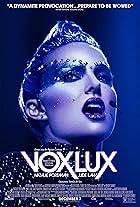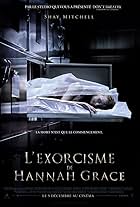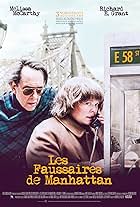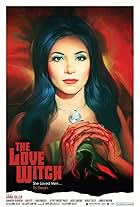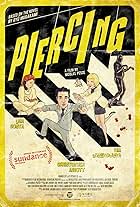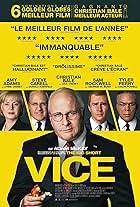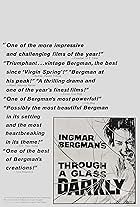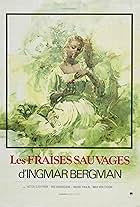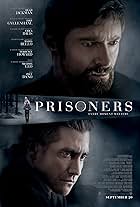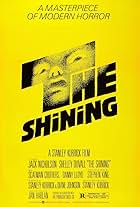
robbieclaravall
A rejoint le janv. 2016
Bienvenue sur nouveau profil
Nous travaillons toujours à la mise à jour de certaines fonctionnalités du profil. Pour voir les badges, les catégories d’évaluations et les sondages relatifs à ce profil, rendez-vous sur le version précédente .
Évaluations1,1 k
Note de robbieclaravall
Avis27
Note de robbieclaravall
As eccentric as, say, Jodorowsky's work (The Holy Mountain in particular), Czechoslovakian director Jaromil Jires interweaves a tale of religion, lust, and power using semi-surreal imagery to tell a story of a young girl growing up into adulthood.
Valerie and Her Week of Wonders is a blissfully short film (clocking in at 77 minutes in my Blu-ray edition), and it mimics the abruptness of a dream once it gets too phantasmagorical. This, in a way, plays with the viewers through deception; the, at times, hypnagogic events being a potent vision of the themes the film wants to deliver. This is an allegorical film about growing up, and it attacks the grey area between adolescence and adulthood, tackling existential questions about identity and personality. Paired with a chorus-like and orchestral soundtrack, the film goes about its motifs through dreamlike images.
This is not to say that it's bleak; in fact, in spite of the subject matter, this feels like a dark comedy at times. This is the type of film that is hard to classify just because of how unorthodox it is, but I do admire Jires's ultimate ambition for his work. The film may not be accessible to everyone, and the entertainment value a stretch too thin, but as a work of cinematic value, there is something to think about here.
Valerie and Her Week of Wonders is a blissfully short film (clocking in at 77 minutes in my Blu-ray edition), and it mimics the abruptness of a dream once it gets too phantasmagorical. This, in a way, plays with the viewers through deception; the, at times, hypnagogic events being a potent vision of the themes the film wants to deliver. This is an allegorical film about growing up, and it attacks the grey area between adolescence and adulthood, tackling existential questions about identity and personality. Paired with a chorus-like and orchestral soundtrack, the film goes about its motifs through dreamlike images.
This is not to say that it's bleak; in fact, in spite of the subject matter, this feels like a dark comedy at times. This is the type of film that is hard to classify just because of how unorthodox it is, but I do admire Jires's ultimate ambition for his work. The film may not be accessible to everyone, and the entertainment value a stretch too thin, but as a work of cinematic value, there is something to think about here.
Bedazzled by an array of chatoyant gowns and prismatic production value, Sofia Coppola's Marie Antoinette never gets past its stylish frames. The color pink is heavily used in its luster; a traditional symbol of reign and Dunst's autonomous lust, but these kaleidoscopic images rapidly putrefy in the hands of a shoddy plot and weak characterization.
The plot is a museum of ravishing shots; the dialogue is very minimal, and the portrait of Marie Antoinette's ill fate never reaches its pinnacle as her character is nothing more than a beautiful figure in a ravishing dress. The problems she faces are more so caused by her capricious nature, and the film doesn't establish a profound statement about her mingled entanglement in life's promiscuous pleasures; thus, empathy for the character is difficult to obtain. This applies the same for the rest of the cast; the acting will do, but they never just get interesting. This may be the result of the lack of a proper screenplay, but as exquisite as the film looks, this is as bland as it gets. The last 15 minutes are handled better (as dire consequences are met), but as a whole, this biopic was quite forgettable.
A supposed narrative about the intricate chain of thoughtless decisions leading to the fall of Versailles turns into a game of frocks and garments. The cinematography and production are indeed beautiful, but as far as substance goes, this doesn't reach its maximum potential. I can see the themes of regal expectations and irresponsible teenagers not blending well, but the representation of the characters in a clunky plot make this film a snoozy and uninteresting watch.
The plot is a museum of ravishing shots; the dialogue is very minimal, and the portrait of Marie Antoinette's ill fate never reaches its pinnacle as her character is nothing more than a beautiful figure in a ravishing dress. The problems she faces are more so caused by her capricious nature, and the film doesn't establish a profound statement about her mingled entanglement in life's promiscuous pleasures; thus, empathy for the character is difficult to obtain. This applies the same for the rest of the cast; the acting will do, but they never just get interesting. This may be the result of the lack of a proper screenplay, but as exquisite as the film looks, this is as bland as it gets. The last 15 minutes are handled better (as dire consequences are met), but as a whole, this biopic was quite forgettable.
A supposed narrative about the intricate chain of thoughtless decisions leading to the fall of Versailles turns into a game of frocks and garments. The cinematography and production are indeed beautiful, but as far as substance goes, this doesn't reach its maximum potential. I can see the themes of regal expectations and irresponsible teenagers not blending well, but the representation of the characters in a clunky plot make this film a snoozy and uninteresting watch.
Expressive eyes, tense lips, closed mouth, and the stare that just looks ahead and farther away from the desolate mundanity to settle to the glorious chants of heaven, Maria Falconetti easily and without a doubt gives one of the best performances found in the era of silent film. The Passion of Joan of Arc is one of the most influential French films of its time, and still continues to inspire today. It focuses on the last days of Joan of Arc's life, and dives right into her trial immediately after being captured and accused of being a heretic.
Being banned in multiple countries as it was controversial during their time, this film is a strong testament on how far human nature can go, how humanity can easily shift towards "sides" depending on number. Likewise, this film is a spiritual experience that explores the idea of faith, and how much sacrifice one can put in just trying to protect or restore one's beliefs. It doesn't show Joan of Arc prior to her days at the trial. It doesn't show her victories, her accomplishments, nor her success in leading the English out of France. Instead, it completely strips her to a character undergoing through a strong crisis as she goes through a questioning of fate that ultimately decides life or death.
I have seen the version with music in it (and am currently interested in viewing the completely silent one), and it is truly transcendent. Considering the fact that it was done way back in 1928 impressed me, and the metaphysical journey that this may bring to the viewer—religious or not, may take one to utmost beauty, even up to the brink of tears. Personally, the psychological power of the close-up made me sympathize much more with Joan, and the fact that Falconetti only acted once in her entire life is just stunning. Even without words, Falconetti is still able to display a performance of outright vulnerability while still being confident and at one with God.
As per usual with silent films, I still did have some problems with this, and these are more personal ones that I found affecting my entertainment value of the film. As great as this film was, I found this one to be a difficult watch not just because of it's bleak subject matter, but also because of the way it was shot. I do understand the power of the close-up and I actually praised it a while earlier, but for me, using it for most of the film's shots was a mistake. There were barely any background pans or shots to establish the character's placement, so it's quite difficult to follow the location of each, making it sometimes a burden to watch. The wooden transitions between each scene also made everything jarring and dizzying. It's easy enough to forgive the film as it was almost made a hundred years ago, but I found myself occasionally distracted enough to pause the film, which isn't a good thing.
In all, The Passion of Joan of Arc is easily commendable because of the technological advancement in film it made during that time, but the low rewatchability and abusive use of close-ups make this a difficult recommendation. Maria Falconetti's passionate performance may still make this film worthwhile, and the influence that this had on preceding films stretches out over many generations, but basing this on entertainment value, this film doesn't really hit the mark and, at times, feels outdated.
Being banned in multiple countries as it was controversial during their time, this film is a strong testament on how far human nature can go, how humanity can easily shift towards "sides" depending on number. Likewise, this film is a spiritual experience that explores the idea of faith, and how much sacrifice one can put in just trying to protect or restore one's beliefs. It doesn't show Joan of Arc prior to her days at the trial. It doesn't show her victories, her accomplishments, nor her success in leading the English out of France. Instead, it completely strips her to a character undergoing through a strong crisis as she goes through a questioning of fate that ultimately decides life or death.
I have seen the version with music in it (and am currently interested in viewing the completely silent one), and it is truly transcendent. Considering the fact that it was done way back in 1928 impressed me, and the metaphysical journey that this may bring to the viewer—religious or not, may take one to utmost beauty, even up to the brink of tears. Personally, the psychological power of the close-up made me sympathize much more with Joan, and the fact that Falconetti only acted once in her entire life is just stunning. Even without words, Falconetti is still able to display a performance of outright vulnerability while still being confident and at one with God.
As per usual with silent films, I still did have some problems with this, and these are more personal ones that I found affecting my entertainment value of the film. As great as this film was, I found this one to be a difficult watch not just because of it's bleak subject matter, but also because of the way it was shot. I do understand the power of the close-up and I actually praised it a while earlier, but for me, using it for most of the film's shots was a mistake. There were barely any background pans or shots to establish the character's placement, so it's quite difficult to follow the location of each, making it sometimes a burden to watch. The wooden transitions between each scene also made everything jarring and dizzying. It's easy enough to forgive the film as it was almost made a hundred years ago, but I found myself occasionally distracted enough to pause the film, which isn't a good thing.
In all, The Passion of Joan of Arc is easily commendable because of the technological advancement in film it made during that time, but the low rewatchability and abusive use of close-ups make this a difficult recommendation. Maria Falconetti's passionate performance may still make this film worthwhile, and the influence that this had on preceding films stretches out over many generations, but basing this on entertainment value, this film doesn't really hit the mark and, at times, feels outdated.



